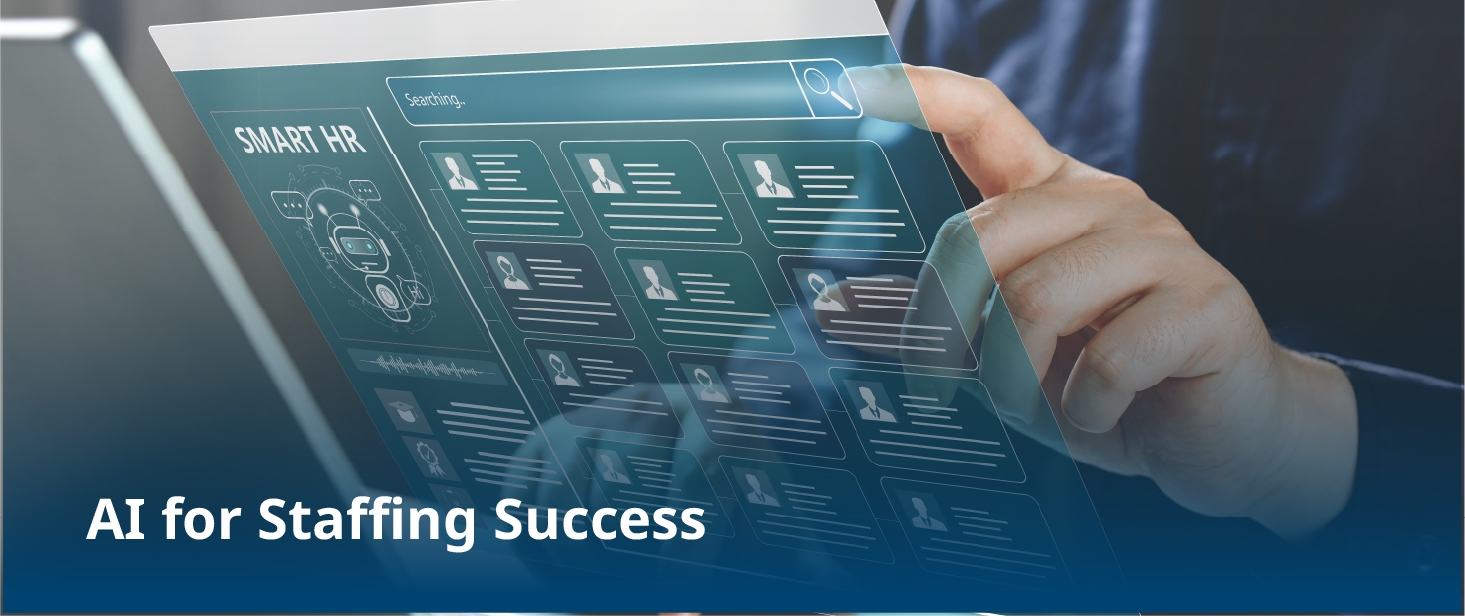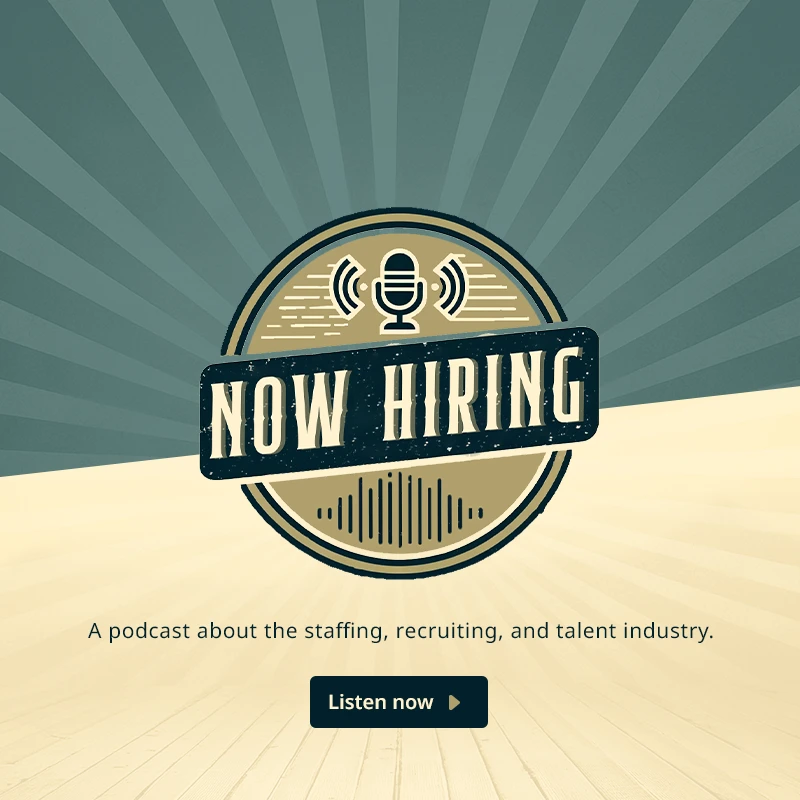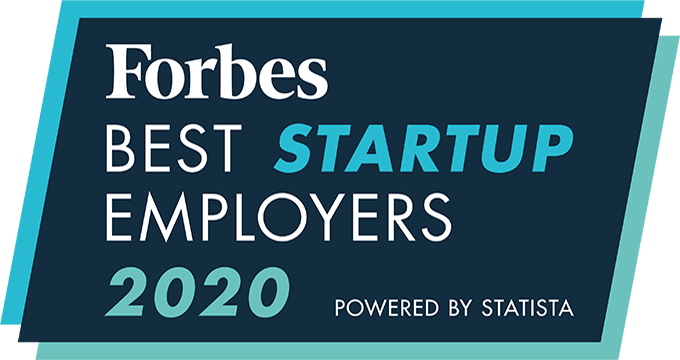As organizations strive to streamline their recruitment processes, AI has emerged as a powerful tool. Its ability to analyze vast amounts of data, identify patterns, and predict candidate suitability has led to increased adoption across industries. From resume screening to video interviews, AI automates numerous tasks, saving time and recruiting resources.
AI-Driven Staffing Success Isn’t Always Simple
In recent years, we’ve all heard the hype about AI, and we know that it can be a useful tool in the hiring process, automating mundane tasks and improving efficiency. But, like any technological advancement, AI can present challenges along with all the benefits. How can you achieve AI-driven success in your staffing business and avoid the common pitfalls of this universal technology? Here are some of the common challenges businesses face with AI and tips for tackling them.
Common Issues With AI
Algorithmic Bias
One significant challenge of using AI-driven hiring is the potential for algorithmic bias. If the data used to train AI models is biased, it can perpetuate and even exacerbate existing prejudices. This raises ethical concerns and may result in discriminatory hiring practices.
Bot vs Human
Many professionals worry that AI will replace their job. Not to worry. Though AI can efficiently handle many aspects of the hiring process, it still lacks the human touch. AI just can’t build a genuine connection with candidates and assess cultural fit as well as a human being can. You need to find the right balance between automation and human involvement to be successful in using this tech in your hiring processes.
Not-so-Seamless Integration
Implementing AI in hiring requires a strategic approach. Many organizations face challenges in integrating AI seamlessly into their existing processes. The complexity of implementation can lead to resistance from employees and hinder the realization of its full potential.
Data Security
Handling sensitive candidate information poses a significant challenge. Ensuring data security and compliance with privacy regulations is paramount. A breach could not only compromise candidate trust but also result in legal ramifications for the organization.
How To Overcome the Challenges
- Ensure Diversity in Data: To address algorithmic bias, organizations must ensure diversity in the data used to train AI models. This involves incorporating a wide range of demographics to create a fair and unbiased representation, minimizing the risk of discriminatory outcomes. Once you have assessed your existing data for diversity, the right AI-powered tools can help you track and use candidate data in more meaningful ways.
- Don’t Lose the Human Touch: While AI can streamline processes, it should complement human judgment, not replace it entirely. Human intervention is crucial in assessing soft skills, cultural fit, and understanding the nuances that AI might miss.
- Be Strategic in Implementation and Training: A thoughtful and strategic approach to implementing AI is essential. Providing adequate training to HR professionals and employees involved in the hiring process ensures a smooth transition and maximizes the benefits of AI technology.
- Prioritize Data Security: Organizations must invest in robust data security measures. Encrypting sensitive information, ensuring compliance with data protection laws, and regularly auditing security protocols can safeguard against potential breaches and protect candidate privacy.
Synergistic Future: AI-Human Collaboration
Yes, there are always challenges that come with implementing new technology, and AI is no exception. Staffing organizations must strike a balance between leveraging technological advancements and preserving the human touch. Acknowledging and addressing the challenges, coupled with strategic solutions, can serve to ensure a smoother integration of AI into the hiring process. The good news for staffing and recruiting professionals is that AI, when use wisely, can be a powerful tool for automating processes and identifying and securing top talent.









